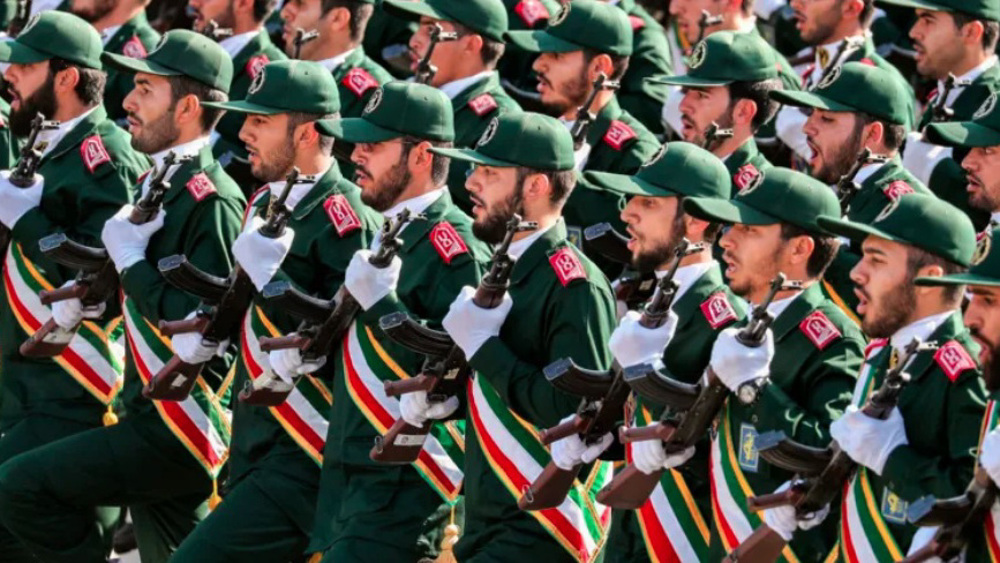Labor conditions in US prisons under-reported: Commentator
Press TV has conducted an interview with John Steppling, an author and commentator, about prisoners in two dozen American states going on strike to protest living conditions and “modern-day slavery”.
Here is a rough transcription of the interview:
Press TV: Currently as we speak, how do you see prison conditions in the United States? Some say the conditions are at times under-reported.
Steppling: Well I think they are hugely under-reported. The United States has more people in prison per capita and real than any nation in the history of the world. It is the most punitive society, most authoritarian and punitive culture possibly in world history and that is not hyperbole.
This strike that has been organized by prisoners, the Free Alabama Movement and others, comes 45 years after the Attica uprising, on the anniversary of the Attica uprising. The demands that the prisoners made at Attica are still the demands being made today, nothing has changed. If anything, prison conditions have worsened over 45 years and certainly the prison population has increased over 45 years.
One of the big topics or points of this strike is labor, the labor conditions in prison. Prisoners’ work is mandatory. You face reprisals from guards if you do not work and yet they are not really paid anything. In fact often they are fined for kind of capricious reasons and they lose money during their work time essentially and their families are forced to pay for this.
So the prison population, the burden also falls on the families of prisoners. It affects everybody in the community eventually but this is a new disposable class, I mean that is how it is viewed, for profit companies use prison labor that is extraordinarily cheap, cost them nothing almost and this is not reported in the media at all.
Press TV: As you highlighted there, one of the other issues that the activists are highlighting is the issue of slavery, and that in fact the big corporations are making massive profits out of prisoner enslavement. How much are prisons monitored, and is it among a prisoner’s duties to work as a slave?
Steppling: Well it is not, it is not anybody’s duty to be a slave and yes, there is no monitoring, there is virtually none and that is why there is a strike going on as we speak. It is not just slave labor, it is slave labor and slave conditions. I mean food is toxic. I know in Texas prisons they have recorded the heat index, Fahrenheit, 150 degrees in maximum security housing at times, excessive use of solidarity confinements especially in California prisons but there have also been organizations by women’s prisoners, Trans people in prison, so the strike is spreading and the media is by and large ignoring it.
But to get back to labor, you have to understand that when corporations make huge profits from prison labor, they are also not supplying jobs to the rest of the population. There are precious few jobs in the United States as it is and they are even less because we now have a slave work force of incarcerated people.
So it is pretty shocking that 45 years after Attica and there is a great new book out on the Attica uprising, that most of those conditions have not changed. If anything, they have worsened and some of this, this spike in prison population came at the Reagan’s war on drugs, Clinton’s crime bill and so forth, it became a disposable population and now they are exploited for slave labor.
VIDEO | Press TV's news headlines
Gaza Nasser Hospital slams MSF’s ‘unsubstantiated’ claims as medical work suspended
Jordan condemns Israeli incursions at Al-Aqsa Mosque as 'flagrant violation'
Ex-Ukrainian energy minister arrested amid corruption probe while trying to flee
VIDEO | Israel using militias to deepen chaos in Gaza
Putin’s aide praises Iran’s ‘competitive’ technological achievements
VIDEO | Brussels exhibition exposes Western-backed genocide in Gaza
20,000 patients stuck as Gaza demands full operation of Rafah crossing














 This makes it easy to access the Press TV website
This makes it easy to access the Press TV website